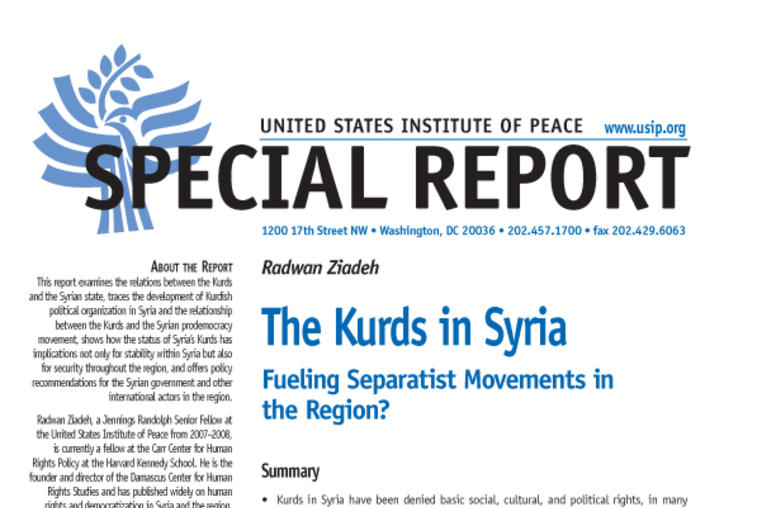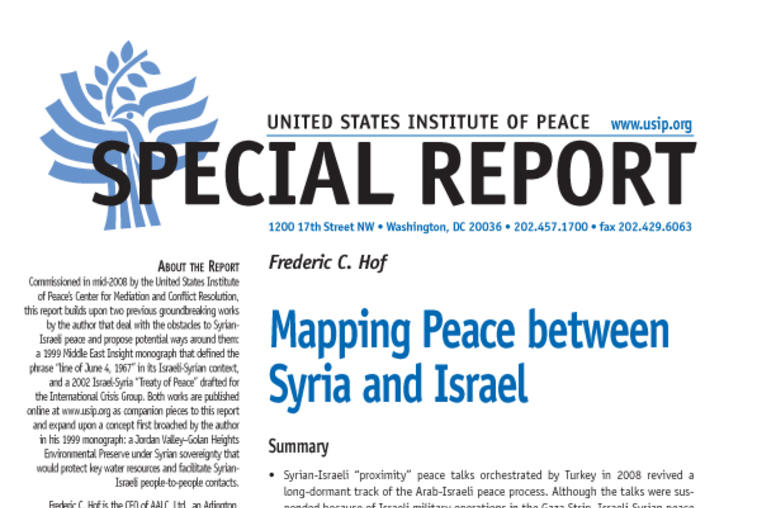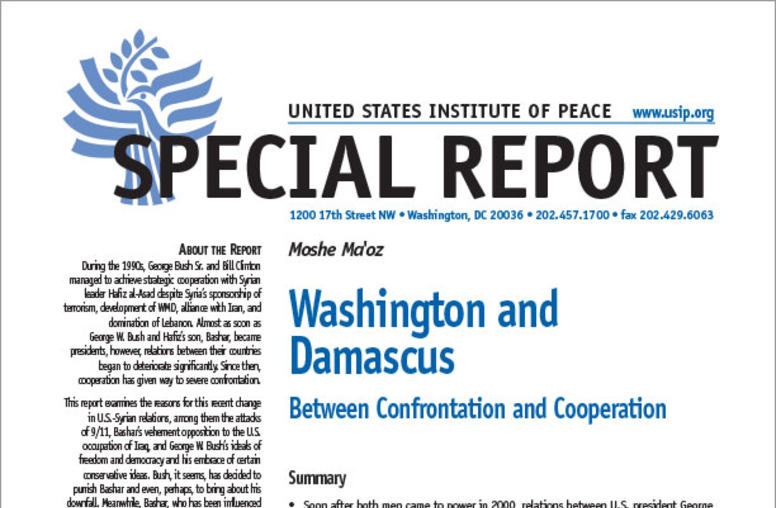Publications
Articles, publications, books, tools and multimedia features from the U.S. Institute of Peace provide the latest news, analysis, research findings, practitioner guides and reports, all related to the conflict zones and issues that are at the center of the Institute’s work to prevent and reduce violent conflict.
Syria’s Alliance with Iran
Against a backdrop of growing instability in the Middle East, and despite continued pressure from the West, Syria’s alliance with Iran appears to be holding strong and perhaps even deepening. The United States has strongly criticized both Syria and Iran for contributing to the region’s volatility and, in particular, for playing a destabilizing role in each of three regional conflicts: Iraq, Lebanon, and Palestine.
Syria's Relations with Iraq
Stepped-up regional diplomacy initiatives on Iraq have brought new attention to the role of Iraq's neighbors. A March 10 conference in Baghdad brought together regional powers, including Syria and Iran, together with American and Western diplomats, and marked the most significant diplomatic gathering in Iraq since 1990. As the tempo of diplomacy gains momentum, there is renewed focus on Syrian-Iraqi ties and whether Syria can help bring stability to Iraq.
Syria and Political Change
This USIPeace Briefing recaps discussions at a recent seminar on the speculation of political change in Syria.
Syria and Political Change II
One year after the assassination of former Lebanese Prime Minister Rafik Hariri and facing mounting international pressure, the Syrian regime is consolidating its hold on power and adopting a more defiant stance, both in the region and toward the West.
Syria's Role in Lebanon
As the political situation in Lebanon grows increasingly volatile, the nature of Syria’s role in Lebanon and, in particular, its alliance with Hezbollah, warrants closer examination.
Won’t You Be My Neighbor: Syria, Iraq and the Changing Strategic Context in the Middle East
Overall, Syria has marginally benefited from the war in Iraq at both the regional and international levels. After watching the U.S. military unseat the Baathist regime next door in 2003 with unprecedented speed, it looked to many observers—including some in Damascus—as if Syria would be next in line.

The Kurds in Syria: Fueling Separatist Movements in the Region?
The Kurds of Syria, in contrast to the Kurds of Iraq and Turkey, are little known in the West, but they have similarly strained relations with the state that governs them and face human rights abuses as a minority. The Syrian state’s repression of its Kurdish population, which thus far has not sought a separate state, may contribute to Kurdish claims for self-determination in Turkey, Iran, and Iraq.
Iraq, its Neighbors, and the Obama Administration: Syrian and Saudi Perspectives
Since 2004, USIP's "Iraq and its Neighbors" initiative has sponsored track II dialogues and ongoing research on relations between Iraq and its six immediate neighbors. As part of this work, the Institute--in partnership with the Stimson Center--sponsored a bipartisan, independent, and unofficial Study Mission to Syria and Saudi Arabia in mid-January 2009. The delegation met with a wide variety of leading political figures, businesspeople, NGOs and foreign policy experts in both countries, inc...

Mapping Peace between Syria and Israel
Although the Palestinian-Israeli “track” of the Arab-Israeli dispute remains at the heart of the conflict between Israel and its neighbors, the very complexity of that track (Jerusalem, refugees, borders, etc.) has led some to consider the Israeli-Syrian track to be relatively simple and straightforward. While simple it is not and straightforward it is only in relative terms, the Syrian-Israeli conflict can indeed be settled without prejudice to the central act of the Arab-Israeli drama.

Washington and Damascus: Between Confrontation and Cooperation
Summary Soon after both men came to power in 2000, relations between U.S. president George Bush and Syria's president Bashar al-Asad began to deteriorate significantly. Since the Iraq war of 2003, Washington and Damascus have been on a collision course. Washington has resented the indirect assistance provided by Syria to Saddam's regime and to his loyalists, both before and after the U.S. occupation of Iraq.